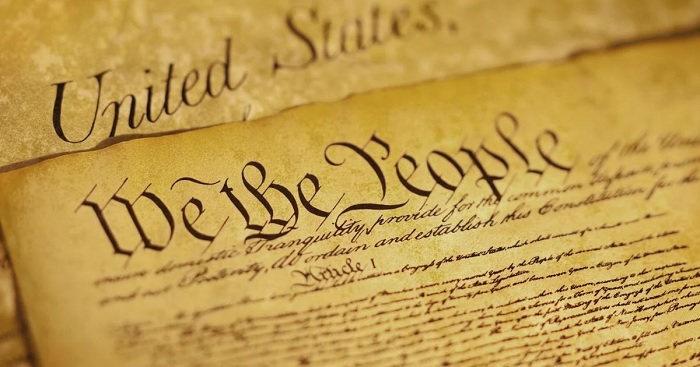September 17 is Constitution Day, commemorating the day in 1787 that thirty-nine of the fifty-five delegates to the Federal Convention in a hot Philadelphia courthouse signed their great work. Creating the Constitution for the United States, currently the oldest republic with power derived from the people, was an intricate work with very few historical precedents. Not all of the delegates came in May of 1787 with the intention of building a new government (some hoped merely to reform the Articles of Confederation), but they came with remarkably little in the way of personal agendas or preconditions, remaining open to other arguments, in a manner almost inconceivable in today’s polarized environment. They faced many divisions as severe as ours today, but they worked together to balance the rights of large states and small states, federalists and antifederalists.

Hallmarks of our Constitution, repeated again and again by later countries which followed in adopting a representative government, included the separation of different types of powers (we use an executive, legislative, and judicial branch) and frequent checks and balances, like a bicameral legislature (ours has one house based on population and the other based on region). Many other nations have modelled the very language of their constitutions on that of the United States. This is not to say that all republics reused everything – for example, many have decided against our first-past-the-post, winner-take-all elections in favor of ranked or scored voting; and some aspects of our own Constitution have even been subsequently modified when our people decided that there was a better alternative (for example, the Constitution originally specified that Senators were to be chosen by state legislatures until the 17th Amendment in 1913 changed it to direct popular elections). But still, ours remains the world’s oldest republic, safeguarding simultaneously the interests of majority rule and minority rights, and protecting liberty and equality.
It is a privilege of citizenship to be able to study and celebrate this document. Notably, the authors of the Constitution celebrated it too, in a style that might surprise modern audiences. On September 14, 1787, with the bulk of the work on the document finally completed and days away from signing the final product, the fifty-five delegates drank down 54 bottles of Madeira, 60 bottles of claret, 22 bottles of porter, 12 bottles of beer, 8 bottles of cider, and 7 bowls of punch in a single evening (the tab for all that ran over 89 pounds, 4 shillings) – a different kind of celebration than the fireworks we typically associate with the 4th of July!

On September 20, from 11:30-2 at the IQ Wall in Whitewater Hall, there are opportunities at IU East to learn about the constitution.
The library offers lots of resources as well, from a specially constructed LibGuide to databases that examine the American government and experiment such as American History Online, CQ Researcher, and American Memory to a wide selection of books. Books in our collection explore the Constitution and its ramifications from a plethora of perspectives, including historical viewpoints, with The Framers’ Coup: The Making of the United States Constitution by Michael J. Klarman, Keeping Faith with the Constitution by Goodwin Liu, or Everyman’s Constitution: Historical Essays on the Fourteenth Amendment, the Conspiracy Theory, and American Constitutionalism by Howard Graham; to legal issues, with The U.S. Constitution and Constitutional Law by Brian Duignan, The Citizen’s Constitution: An Annotated Guide, View of the Constitution of the United States by St. George Tucker, or Constitution of the United States: In Some of Its Fundamental Aspects by Gaspar Bacon; to literature, with American Epic: Reading the U. S. Constitution by Garrett Epps or Secular Revelations: The Constitution of the United States and Classic American Literature by Mitchell Meltzer; to religion, with The Religion Guarantees: a Reference Guide to the United States Constitution by Peter Rofes or Religious Freedom and the Constitution by Christopher L. Eisgruber; to economics, with To Form a More Perfect Union: A New Economic Interpretation of the United States Constitution by Robert McGuire, to reference works, such as Ratification of the Constitution 1787-1790.
Interested in learning more about the Constitution of the United States? Ask Us! at iueref@iue.edu or click this button:


